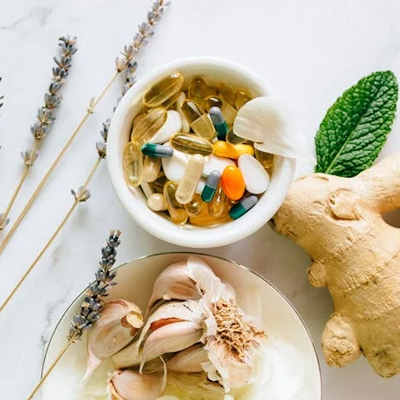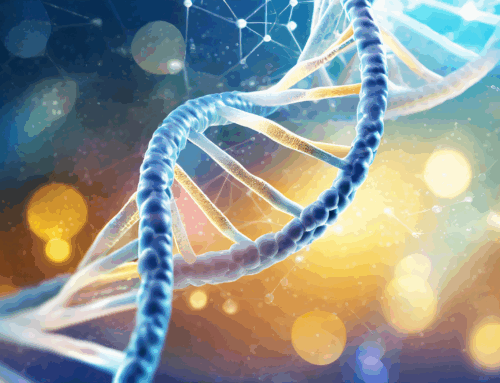Mental health challenges like anxiety, depression, and PTSD (Post-Traumatic Stress Disorder) affect millions of people globally.
Conventional treatment approaches typically include medication, psychotherapy, or a combination of both.
However, many individuals are turning to naturopathic doctors and holistic practitioners for complementary support.
These approaches offer a more individualized and integrative strategy that addresses the root causes of mental health issues while promoting overall well-being.
Understanding the Naturopathic and Holistic Approaches
Naturopathic doctors (NDs) and holistic practitioners prioritize treating the whole person—mind, body, and spirit—rather than focusing solely on symptoms.
They believe that mental health is deeply connected to physical health and that imbalances in one area of the body can manifest in other areas, including emotional and psychological well-being.
By using natural therapies, lifestyle interventions, and mind-body techniques, these practitioners aim to support healing from within, restoring balance and promoting resilience.
Supporting Anxiety
Anxiety disorders, which include generalized anxiety disorder, social anxiety, and panic disorder, are characterized by excessive worry, fear, and nervousness. Naturopathic and holistic approaches to managing anxiety often involve addressing lifestyle factors, nutritional deficiencies, and underlying physical conditions.
- Nutritional Support: Naturopathic doctors may assess a patient’s diet and identify nutritional deficiencies that could contribute to anxiety, such as magnesium, B vitamins, and omega-3 fatty acids. They may recommend dietary changes and supplements to restore balance.
- Herbal Medicine: Herbs like ashwagandha, valerian root, and passionflower are commonly used to reduce anxiety and promote calmness. These herbs help modulate the body’s stress response and support the nervous system.
- Bach Flower Remedies: Custom mixes of Bach flowers, like Aspen, Mimulus, Gentian, Olive, and Rescue are often used to realign emotions to promote tranquility and calmer thoughts.
- Mind-Body Techniques: Holistic practitioners often incorporate practices such as mindfulness meditation, yoga, and deep breathing exercises to help individuals manage stress and anxiety. These techniques encourage relaxation, improve emotional regulation, and cultivate a sense of inner peace.
- Lifestyle Modifications: Both naturopathic doctors and holistic practitioners may advise patients to reduce caffeine intake, prioritize sleep, and incorporate regular physical activity to help manage anxiety symptoms.
Supporting Depression

Depression is a complex condition that can result from a combination of genetic, biochemical, environmental, and psychological factors. Naturopathic and holistic approaches to depression often focus on balancing neurotransmitter levels, improving gut health, and addressing lifestyle factors that contribute to mood imbalances.
- Dietary Interventions: Naturopathic doctors often emphasize the importance of a nutrient-dense diet to support brain health. Omega-3 fatty acids, found in fish and flaxseed, as well as folate-rich foods like leafy greens, are known to improve mood and cognitive function. In some cases, specific amino acid supplementation may be recommended to help boost serotonin and dopamine levels.
- Gut Health: Holistic practitioners recognize the strong connection between gut health and mental health, often referred to as the “gut-brain axis.” Addressing gut imbalances through probiotics, fermented foods, and anti-inflammatory diets can improve mood and alleviate symptoms of depression.
- Bach Flower Remedies: Bach Flowers such as Gorse, and Mustard, and Rescue are often used to promote a happier and more satisfied sense of self.
- Herbal, and Nutritional Supplement: St. John’s Wort, SAMe (S-adenosylmethionine), and Rhodiola are herbal remedies and supplements that naturopathic doctors might recommend for depression. These natural substances can help support neurotransmitter balance and reduce symptoms.
- Mind-Body Therapies: Holistic practitioners may incorporate energy healing practices such as Reiki, acupuncture, and craniosacral therapy to help release emotional blockages and improve emotional well-being. These therapies can provide gentle, non-invasive support for those experiencing depression.
Supporting PTSD
PTSD is a complex mental health condition that can develop after experiencing or witnessing a traumatic event. It is often characterized by intrusive thoughts, flashbacks, nightmares, and severe anxiety. Naturopathic doctors and holistic practitioners can offer support through a variety of therapies aimed at calming the nervous system, healing trauma, and promoting resilience.
- Adaptogenic Herbs: Adaptogens like ashwagandha, Rhodiola, and Holy Basil are used to support the body’s ability to adapt to stress and reduce the impact of trauma on the nervous system. Naturopathic doctors may include these herbs in treatment plans to help regulate stress hormones and improve emotional resilience.
- Mindfulness and Meditation: Holistic practitioners often teach mindfulness-based practices to help individuals with PTSD remain grounded in the present moment. These techniques can reduce the intensity of flashbacks, alleviate anxiety, and help individuals process trauma in a safe and supportive manner.
- Trauma-Informed Care: Naturopathic doctors and holistic practitioners often employ trauma-informed approaches, ensuring that treatments are sensitive to the unique needs of individuals with PTSD. This may involve somatic therapies, which focus on releasing trauma stored in the body, or counseling techniques that prioritize safety and self-regulation.
- Bach Flower Remedies: Bach Flowers such as Rescue, Gentian, Aspen, and Mimulus are often used to realign emotions to minimize reactions to PTSD triggers.
- Integrative Therapies: Naturopathic doctors may collaborate with conventional healthcare providers to offer a comprehensive treatment plan for PTSD. This integrative approach may include psychotherapy, medication (if needed), and natural therapies to support overall healing.
Patient Empowerment and Education
A hallmark of naturopathic and holistic care is patient empowerment.
Both naturopathic doctors and holistic practitioners emphasize education, helping patients understand the connections between their lifestyle choices and mental health.
They encourage patients to take an active role in their healing process, offering them tools to manage symptoms, reduce stress, and build resilience.
This empowerment can be particularly beneficial for individuals dealing with anxiety, depression, and PTSD, as it fosters a sense of control and agency in their healing journey.
In the End…
Naturopathic doctors and holistic practitioners provide valuable support for individuals struggling with anxiety, depression, and PTSD.
Through a combination of natural therapies, lifestyle modifications, and mind-body practices, they address the underlying causes of mental health challenges and promote overall well-being.
By treating the whole person, these practitioners offer a compassionate and integrative approach that can complement conventional treatments, empowering individuals to heal and thrive.




